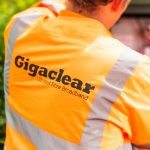Explaining KCOM’s Plan for a 10Mbps Broadband USO in Hull, East Yorkshire
Over the past two years we’ve heard plenty of debate about the Government and BT’s proposed plan for a legally-binding 10Mbps Universal Service Obligation for broadband, although there’s been very little talk about KCOM’s position in Hull and East Yorkshire, where they dominate the local market.
The operator is widely expected to participate in the new USO, just as they have done with Ofcom’s existing measure for copper phone lines, although KCOM’s local network is currently somewhat more advanced and this should in theory make it possible for them to go a lot further than the proposed minimum download speed of 10Mbps (1Mbps upload).
A KCOM Spokesperson told ISPreview.co.uk:
“We support the introduction of a broadband USO as a safety net to ensure customers have access to reliable and affordable broadband with a baseline speed of 10Mbps by the end of 2020. The baseline speed required by the USO will, of course, need to increase over time. The specifics remain subject to consultation and we are engaging with the Government regarding these.
Through the deployment of our full fibre Lightstream service across our Hull and East Yorkshire network we are already delivering speeds far in excess of both the 10Mbps minimum and the superfast 30Mbps services outlined in the Government’s consultation.
We are seeing strong demand for the faster speeds and associated benefits full fibre delivers and our continued investment in Fibre To The Premises is designed to keep pace with that demand.”
At this point it’s worth noting that Hull doesn’t always come out smelling of roses in studies of real-world consumer broadband speed, with one conducted by uSwitch last year showing that the average speed of the city was one of the slowest such urban areas in the UK at just 12.42Mbps (here). But that result has more to do with the fact that many people are still on slower ADSL2+ lines (other studies have also given a higher figure) and it grossly overlooks the coverage of their new fibre optic infrastructure.
Advertisement
So far KCOM’s “ultrafast broadband” capable Fibre-to-the-Premise (FTTP) dominated “full fibre” network has already covered well over 100,000 premises within their network footprint and they’re on course to reach 150,000 premises by December 2017, which equates to about 75% of their overall network in Hull and East Yorkshire.
Take-up is also strong, with around 50,000 customers choosing to subscribe, but that still leaves many on ADSL2+ (as above). Residential consumers are generally offered a maximum line speed of up to 250Mbps (30Mbps upload) on FTTP (soon to be 350Mbps), although around 7-8% of the operator’s Lightstream network is also based on their slower ‘up to’ 50Mbps Fibre-to-the-Cabinet (FTTC / VDSL2) technology.
However a number of recent submissions by KCOM to Ofcom have already all but confirmed that the operator will shortly announce an extension to their Lightstream roll-out. For example, this submission (PDF) to the regulator’s USO consultation reveals that they “expect to have completed” their fibre deployment by the end of 2020.
KCOM’s USO Submission
By the end of 2020 we expect that every residential and business customer (both in the Hull area and where our network is available in East Yorkshire) would be able to connect to our NGA fibre network. This will ensure universal services are available at superfast/ultrafast broadband speeds, with common standard connection costs and uniform monthly prices.
Therefore, it is likely that those on-net areas that are currently unable to obtain baseline broadband services will benefit from a fibre upgrade without the need to impose a USO.
We should point out that KCOM’s submission defined “superfast” as 30Mbps+ and the operator further reinforced their plan by stating that those currently unable to obtain speeds above 10Mbps are expected “to fall to zero by the end of 2020.” Last year Bill Halbert, CEO of KCOM, also said that 10Mbps didn’t go nearly “far enough.”
Advertisement
Mind you it’s entirely possible that real-world speeds in Hull may remain suppressed until subscribers feel enticed enough to upgrade from slower connections, although with the operator also aiming to be the first major telecoms provider to completely switch-off their old copper line network then that situation may not last for long (here).
Mark is a professional technology writer, IT consultant and computer engineer from Dorset (England), he also founded ISPreview in 1999 and enjoys analysing the latest telecoms and broadband developments. Find me on X (Twitter), Mastodon, Facebook, BlueSky, Threads.net and Linkedin.
« Loss of Phone Number Dilemma Strikes BT’s FTTP Ultrafast Broadband

















































Comments are closed